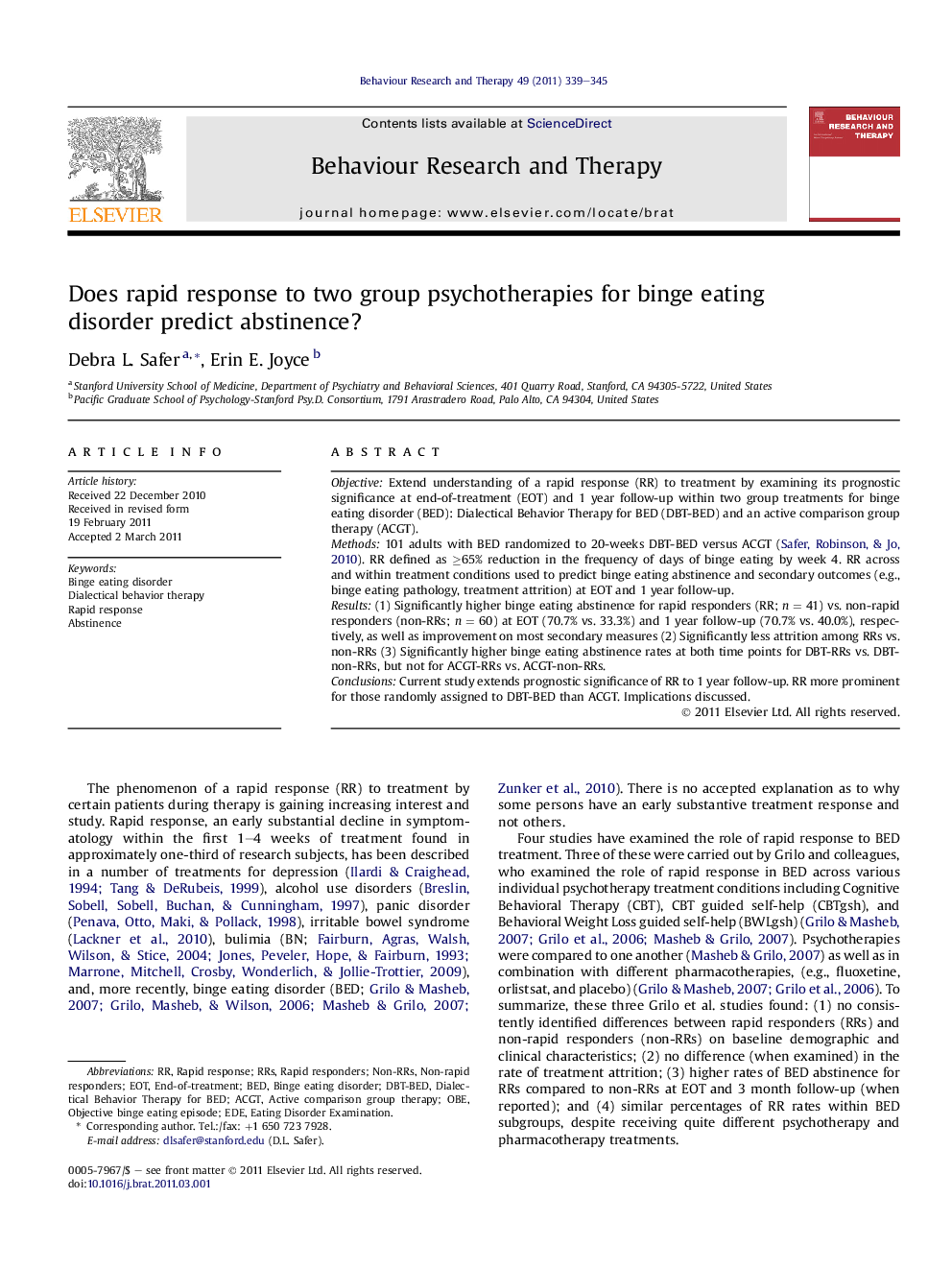| کد مقاله | کد نشریه | سال انتشار | مقاله انگلیسی | نسخه تمام متن |
|---|---|---|---|---|
| 902119 | 916123 | 2011 | 7 صفحه PDF | دانلود رایگان |

ObjectiveExtend understanding of a rapid response (RR) to treatment by examining its prognostic significance at end-of-treatment (EOT) and 1 year follow-up within two group treatments for binge eating disorder (BED): Dialectical Behavior Therapy for BED (DBT-BED) and an active comparison group therapy (ACGT).Methods101 adults with BED randomized to 20-weeks DBT-BED versus ACGT (Safer, Robinson, & Jo, 2010). RR defined as ≥65% reduction in the frequency of days of binge eating by week 4. RR across and within treatment conditions used to predict binge eating abstinence and secondary outcomes (e.g., binge eating pathology, treatment attrition) at EOT and 1 year follow-up.Results(1) Significantly higher binge eating abstinence for rapid responders (RR; n = 41) vs. non-rapid responders (non-RRs; n = 60) at EOT (70.7% vs. 33.3%) and 1 year follow-up (70.7% vs. 40.0%), respectively, as well as improvement on most secondary measures (2) Significantly less attrition among RRs vs. non-RRs (3) Significantly higher binge eating abstinence rates at both time points for DBT-RRs vs. DBT-non-RRs, but not for ACGT-RRs vs. ACGT-non-RRs.ConclusionsCurrent study extends prognostic significance of RR to 1 year follow-up. RR more prominent for those randomly assigned to DBT-BED than ACGT. Implications discussed.
Journal: Behaviour Research and Therapy - Volume 49, Issue 5, May 2011, Pages 339–345